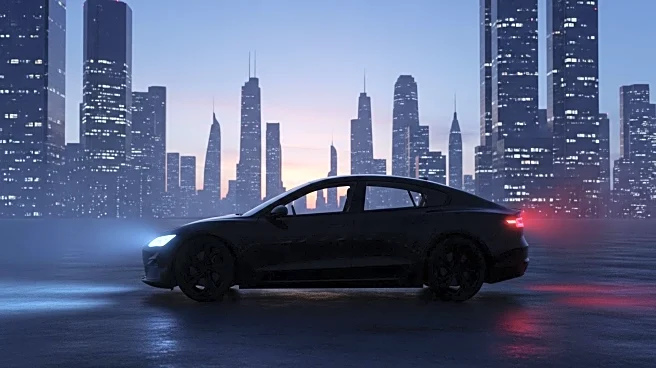What is the story about?
What's Happening?
Fisker, an electric car company, declared bankruptcy last summer after failing to secure necessary funding. Prior to its closure, Fisker had introduced three new models: the budget-friendly Pear, the Ronin supercar, and the Alaska pickup truck. Despite the company's shutdown, the U.S. Patent and Trademark Office recently granted a patent for the design of the Alaska pickup. This development comes as a surprise, given the company's financial struggles and the lack of support for existing customers who are now facing issues such as parts shortages and vehicle depreciation. Fisker's website has been largely stripped of information, leaving only a letter addressing a recall on the Ocean model.
Why It's Important?
The bankruptcy of Fisker highlights the volatility and challenges within the electric vehicle industry, particularly for startups. The lack of parts support and significant depreciation of Fisker vehicles could deter potential buyers from investing in new electric vehicle brands, impacting consumer confidence. The patent approval for the Alaska pickup, despite the company's closure, underscores the complexities of intellectual property in the automotive sector. This situation may influence how future electric vehicle companies manage their intellectual property and financial strategies to avoid similar pitfalls.
What's Next?
With Fisker's bankruptcy, customers are left to navigate the challenges of maintaining their vehicles without manufacturer support. The granted patent for the Alaska pickup may attract interest from other automotive companies or investors looking to capitalize on Fisker's designs. However, without a company to bring these designs to market, the future of Fisker's innovations remains uncertain. Industry observers will be watching to see if any entities attempt to revive Fisker's concepts or if the patents will remain unused.















